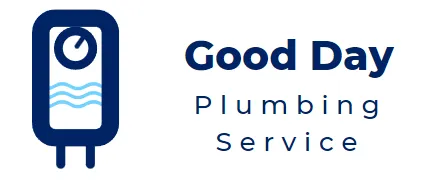Types of Water Heaters:
Which One is Best for You?
Looking for a new water heater can be tough with so many styles available like traditional tanks, solar, and tankless units. Efficiency levels and hot water capacity vary and this can be overwhelming! Don't worry, our review breaks down each type in detail so you can select the best one for your family's needs. Keep reading to get informed & make the right choice - we’ll compare the pros and cons of each option!

Traditional Storage Tank Water Heaters
Tank-style water heaters are a popular type of appliance that store and heat water in insulated tanks, which use gas, electricity, or oil as an energy source. These units facilitate hot water flowing seamlessly out of the tap as and when needed. With the help of this water heating method, you can keep your home's hot water supply in check.
Pros:
Lowered cost
Longer warranty periods.
Easy maintenance.
Cons:
High operating expenses from low energy efficiency are a major drawback of traditional water heaters.
These types of water heaters also have limited capacity, resulting in a shortage of hot water when needed
There's always the risk of water damage if the tank fails or has a leak.

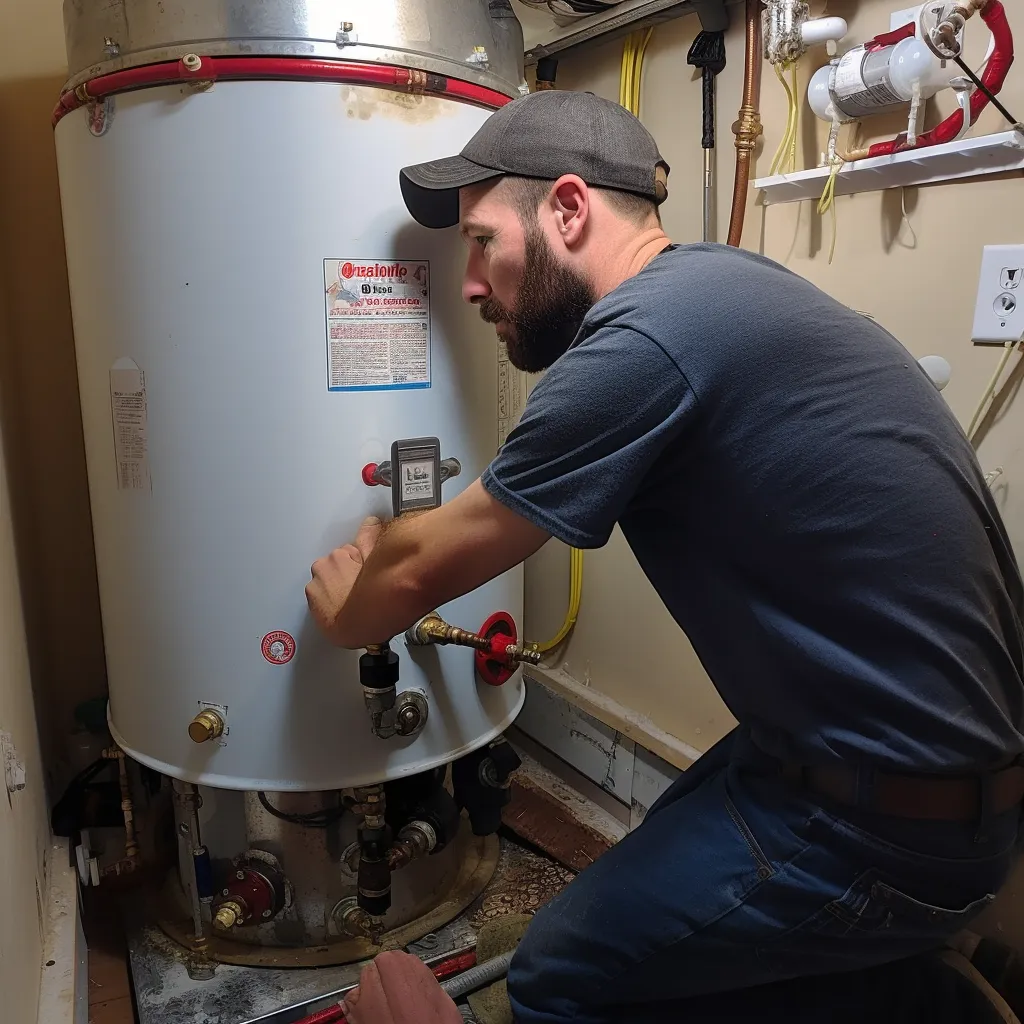
Tankless Water Heaters
Tankless models are a sleek and efficient option for obtaining hot water when compared to traditional models. Rather than holding and heating water in a large tank, they heat water on demand, conserving energy and space. Although the upfront cost is higher, the utility savings over time compensate for it.
Pros:
Tankless water heaters are an excellent choice for homeowners because of their ease of installation due to their compact design.
Their high energy efficiency guarantees consistently low bills, letting you enjoy hot water without worrying about costs
You'll never have to worry about running out of hot water with a tankless unit as long as there's demand.
Given their longevity, tankless water heaters make for smart investments in your home.
Cons:
Tankless water heaters may cost more initially than traditional storage tank water heaters.
Additional piping or ductwork may be required in small spaces, leading to venting complications.
It's essential to note that the limited capacity of tankless water heaters makes them unsuitable for high demand applications, reducing hot water availability per use.
Heat Pump Water Heaters
Heat pump water heaters are highly efficient and affordable for heating water. They leverage a small compressor to transfer heat from air, providing hot water at low cost. Moreover, they don't need electricity, making them useful during power outages.
Pros:
By using a cutting-edge heat pump water heater that attains renewable energy from the air, you can lower your monthly utility bills.
The heat pump water heater technology that harnesses renewable energy from the air makes it possible to create high-performance, eco-friendly hot water systems.
Even during outages, experience uninterrupted hot water supply. Get on board with us for affordable, future-ready solutions.
Cons:
The initial cost of heat pump water heaters is typically higher than traditional water heaters.
During installation, additional ventilation and space may be required, making it potentially challenging.
Also, the capacity could be limited, resulting in limited hot water availability.
.
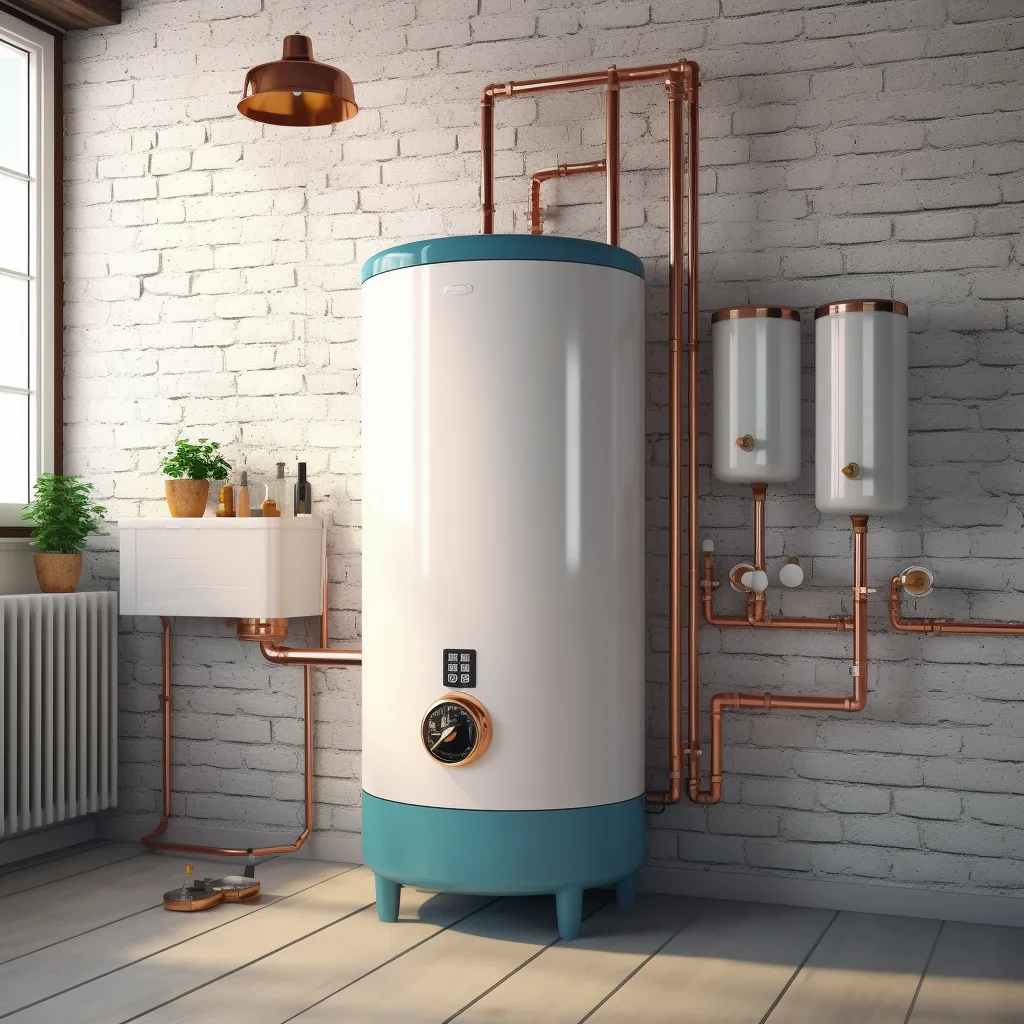
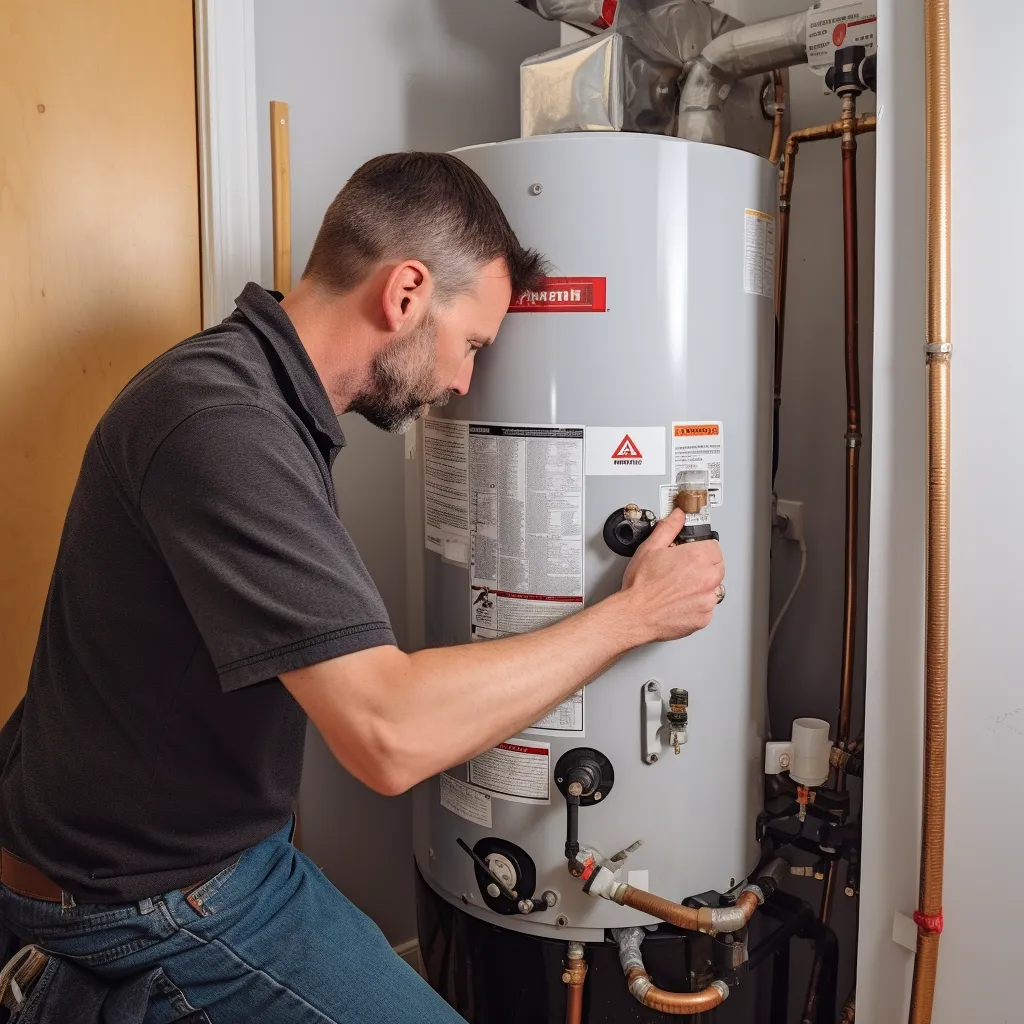
Heat Pump Hybrid Water Heaters
Heat pump hybrid water heaters incorporate the best aspects of traditional storage tanks and heat pumps, achieving high efficiency and lower operating costs. Although requiring more upfront investment than traditional units, they're easily superior in functionality and effectiveness. Plus, the hybrid technology provides clean energy-saving comfort and hot water to your business with reduced environmental impact and lower carbon footprint.
Pros:
These units save you money on utility bills through state-of-the-art technology that prioritizes energy-efficiency and, in turn, your wallet.
Using energy solely from the surrounding air reduces electricity consumption, preserving resources and reducing harmful waste.
These units are really convenient, especially during a power outage. With a capability to produce hot water even in emergencies.
Heat pump hybrid water heaters have a much longer lifespan than traditional storage tank heaters.
Cons:
When compared to traditional storage water heaters, tankless units come with an increased upfront expense.
More ventilation and space requirements may become problematic during installation.
Having a limited capacity means that there is only a limited amount of hot water available for each use.
Water damage can occur if the tank leaks or fails.
Higher noise levels can be caused by the heat pump component.
In warmer areas, managing heating and cooling can pose challenges.
Some utility rebates or incentives may not be available in your area.
Solar Powered Water Heaters
Solar-powered water heaters are a cost-effective way to decrease monthly energy bills while also utilizing renewable resources. Active and passive systems represent the two main types available, and they heat up water for a straightforward way to save money while using eco-friendly solutions.

Active Systems:
Active solar-powered water heaters operate using pumps to transfer heated fluid from collectors to a storage tank for later use. They're more efficient than passive thermo systems and generate considerable amounts of hot water. Their cutting-edge energy efficiency is leading the way for energy-conscious homeowners.
Passive Systems:
Passive solar water heaters utilize the sun's energy to heat water using natural convection to transport heated fluid from collectors to the storage tank, offering low installation and maintenance costs. While they offer a smaller quantity of hot water compared to active systems, they're a cheaper alternative and contribute to energy efficiency.
Pros:
These units deliver unparalleled efficiency, resulting in substantial monthly energy cost savings
They harness renewable solar energy, making them a perfect eco-friendly option.
These units have a significantly longer lifespan compared to traditional water heaters, making them an ideal investment.
Cons:
Initially, tankless water heaters may appear to be priced higher than traditional storage tank systems.
Installation could be complicated due to additional space and equipment requirements.
When solar panels are damaged, there's a risk of water damage.
Some models offer limited hot water availability per use due to capacity constraints.
Depending on geographical location, solar-powered water heaters may not qualify for certain utility rebates and incentives or may not be effective due to limited sun exposure.
Potential heating and cooling issues may occur in warmer climates, while freezing is a risk in colder climates.
To ensure optimal performance, regular maintenance is necessary.
Repairing or replacing a damaged unit will be more expensive.
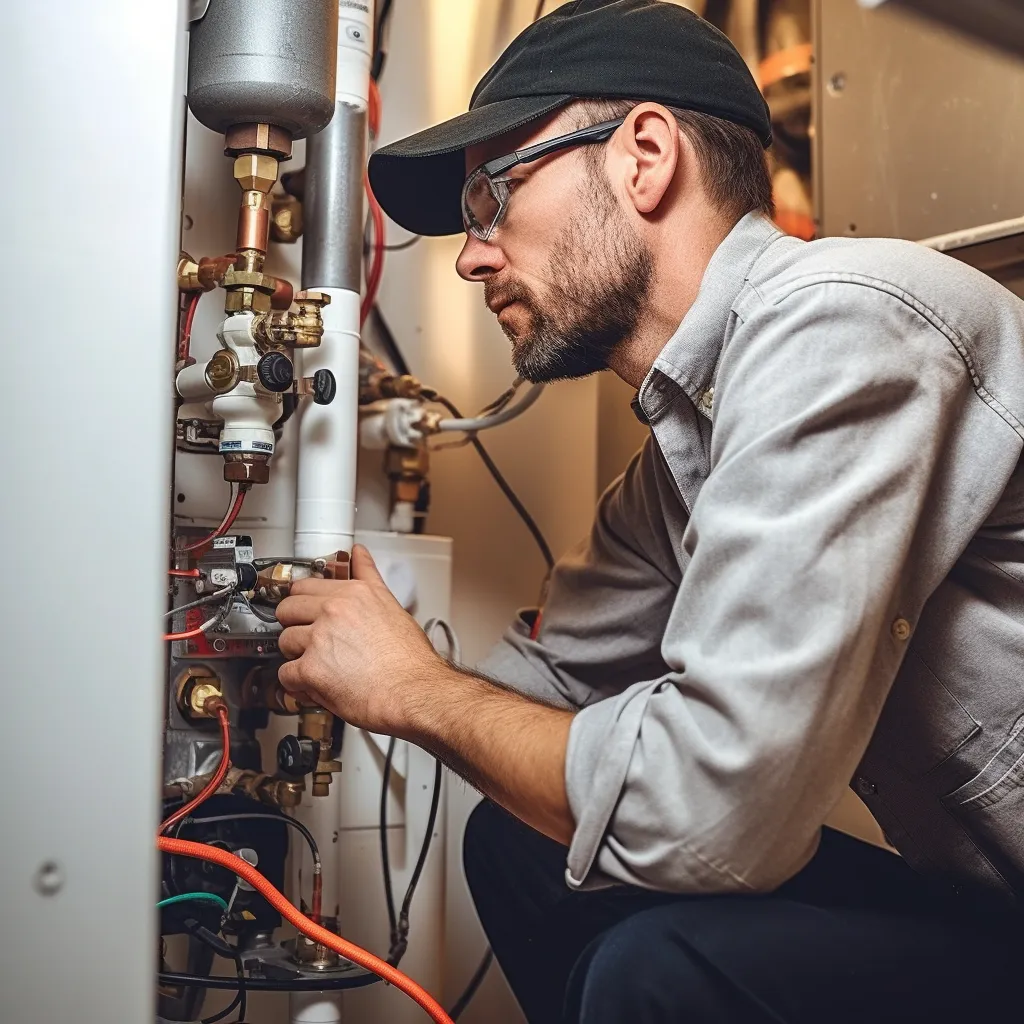

Point-of-Use Water Heaters
If you're seeking hot water on demand, point-of-use water heaters offer a compact and efficient solution that's ideal for small spaces or avoiding the costs of traditional storage tanks. As they consume less energy, they can help reduce monthly bills too.
Pros:
These units are highly energy-efficient, delivering lower utility bills.
Their compact size simplifies installation and maintenance, even in crammed spaces.
They boast longer life than traditional storage tank heaters.
Cons:
Point-of-use water heaters come with a higher initial cost, and may require extra ventilation and installation space
These models have lower hot water capacity, which may limit availability.
Tankless options have a higher risk of water damage with the possibility of leaks
These systems also operate at higher noise levels which may bother sensitive users.
Note that these heaters may not qualify for incentives, and in high-demand areas, they're not recommended.
It's worth noting that point-of-use models may cause heating and cooling issues in warmer climates.
Water Heaters With Hydronic Boilers
Hydronic boilers use water to efficiently distribute heat throughout your space, making them an ideal choice for colder climates. They are perfect for both domestic hot water use and space heating. Additionally, tank water heaters can be paired with them for even more affordable hot water solutions.

Pros:
High efficiency means lower utility bills on a monthly basis.
With space heating and domestic hot water is readily available.
The compact design allows for installation in tight spaces.
Compared to its traditional tank counterparts, it has a significantly longer life expectancy.
Cons:
Water heaters that include hydronic boilers are a bit pricier than traditional storage models initially.
Limited capacity means less hot water per use
The boiler portion may also generate some noise
The eligibility criteria may vary in some areas.
If you're living in an area with high water demand, they might not be the best choice.
Repairing or replacing damaged units units can be quite costly.

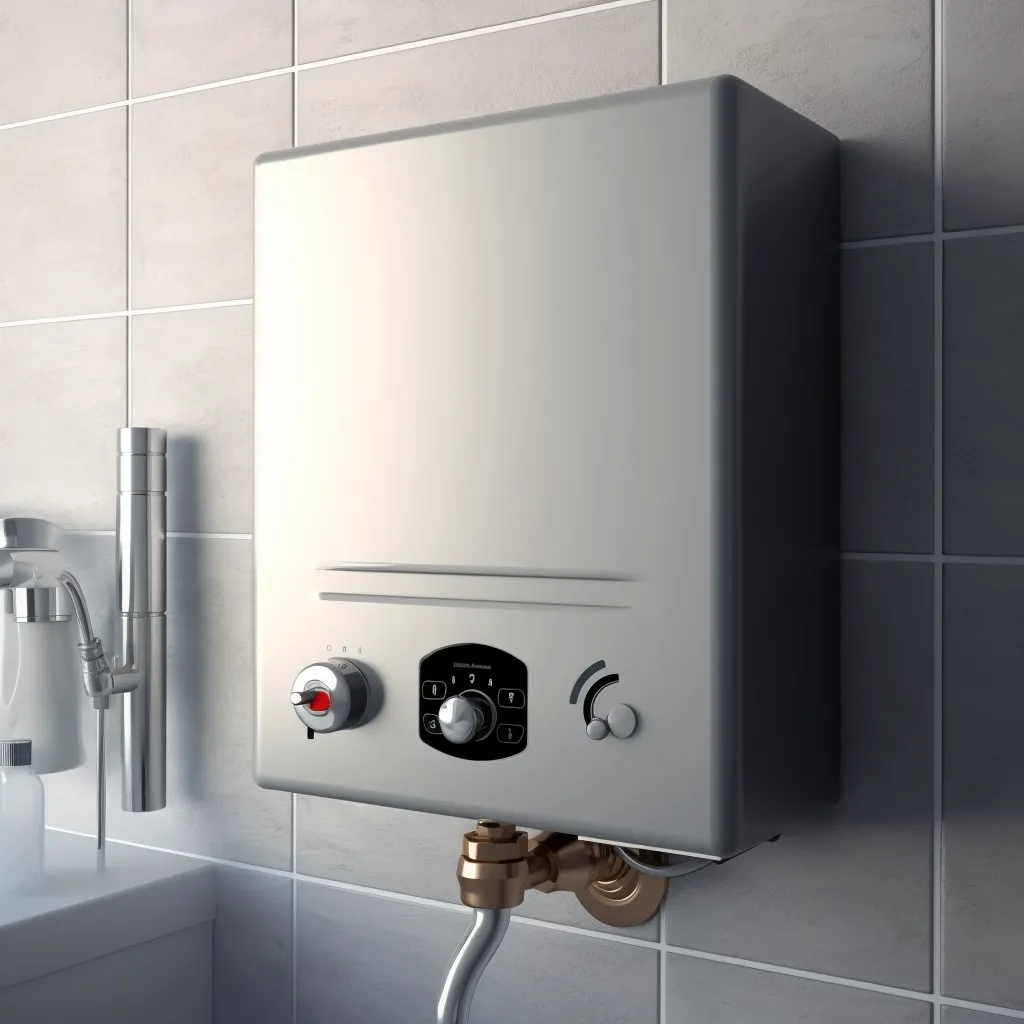
Smart Water Heaters
An innovative way to heat water is by using smart water heaters, the latest technology in the game. Control hot water consumption and bills no matter where you are with Wi-Fi enabled thermostats. Adjust temperature settings through your phone and save money each month with energy-efficient options, like vacation mode. Stay ahead with smarter water heaters!
Pros:
Wi-Fi enabled thermostat for remote water heater control.
Energy-saving modes, like vacation mode, cuts monthly bills.
Compact size makes installation and maintenance easy in tight spaces.
Outlasts traditional storage tank heaters.
Cons:
Switching from traditional storage water heaters to these models can cost more upfront
Some utility rebates may not apply.
A software update might be necessary depending on the device
A lack of Wi-Fi security can lead to possible security threats.

Condensing Water Heaters
Looking for a modern water heating solution that's cost-effective? Check out our condensing water heaters with innovative technology, combining the features of tankless and storage tank heaters. Our advanced models extract heat from exhaust gases, delivering optimal performance and greater efficiency.
Pros:
This system harnesses the power of renewable energy in the air, resulting in remarkable energy efficiency.
Expect a longer life span and lower utility bills.
This system can provide uninterrupted hot water even during power outages.
Cons:
Condensing water heaters are pricier compared to usual storage water heaters.
They require additional space and ventilation, making installation a tad more challenging
They have a restricted capacity, leading to limited hot water available for use.

Tips on how to choose the right
water heater for your home
Choosing the correct water heater size is essential for a comfortable living space that is energy-efficient. Purchasing and operating a small-sized water heater would deprive you of hot water, while buying and using an excessively large water heater would be both costly and space-inefficient. To find the ideal water heater size for your family, consider your daily routine and usage. Choosing the fitting water heater size ensures a sufficient and economical supply of hot water to keep your home cozy.

When should you
replace your water heater?
A steady and reliable supply of hot water is crucial to your cozy home's plumbing. The hot water from your heater powers your daily tasks such as laundry, dishes, and shower. On average, a water heater lasts anywhere from 10 to 15 years. Once it surpasses this range, investing in an upgraded system is the best way to go. Doing so ensures an uninterrupted and efficient hot water supply.
Here are other signs that may mean it's time to get a new water heater:
Leaky tank.
Unusual noises from the water heater.
Rust-colored hot water.
Frequent lack of hot water.
Fluctuating water temperature.
Higher energy bills.
For any complications with your water heater, consulting a licensed plumber at the earliest is crucial. The initial cost of investing in a new installation can appear daunting, but the long-term savings in the form of energy-efficient and reliable performance make it all worth it.
Maintenance Tips: Maximum Water Heater Efficiency
For an uninterrupted supply of hot water, it's crucial to keep your heater in tiptop condition. Frequent flushing to prevent sediment buildup, visualizing the anode rod, examining the pressure relief valve and clearing the area around the heater are all necessary steps. These easy routines guarantee your device's longevity and affordability and ensure a relaxing and uninterrupted shower experience.
Benefits of hiring a licensed plumber
to replace your water heater
Considering the replacement of your water heater? Though it's tempting to DIY such a task, hiring a professional has plenty of advantages you should weigh first.
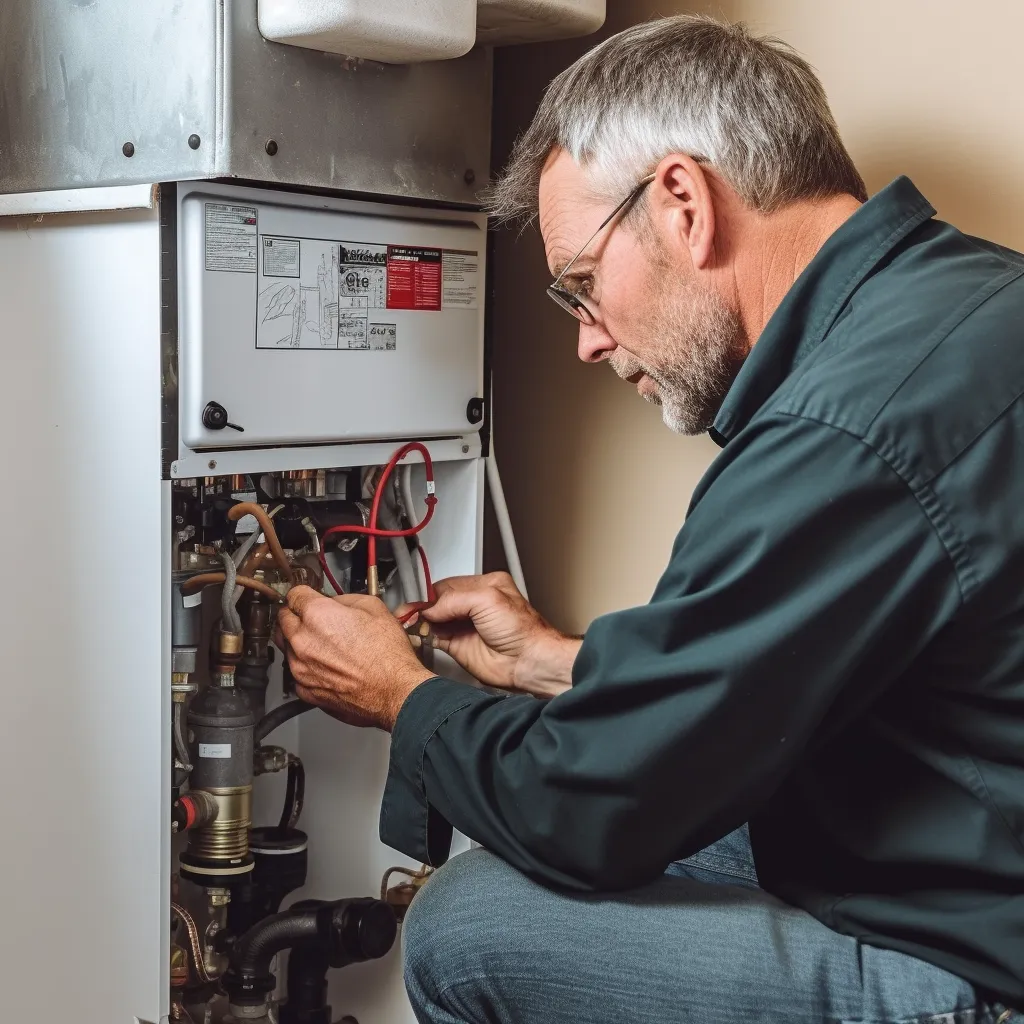
Our top-rated water heater pros possess the skills to install and offer advice on the best type and size to meet your needs. Expect swift and secure service from our experts.
Expert plumbers stay on top of your area's building codes to ensure water heater installation is up to code, keeping your family safe.
Resolving installation issues is critical to ensure your device works optimally. Professional assistance can help troubleshoot & iron out complexities quickly & efficiently.
These professionals have all the necessary equipment to perform top-tier water heater replacement and installation services for you.
Hiring a licensed plumber to replace your water heater is a smart way to save time, money, and frustration.
Contact Us
GET IN FULL TOUCH
PHONE (714) 930-2129
EMAIL:
Daniel@waterheaterbrea.com
Good Day Plumbing Service
Brea, CA 92821
